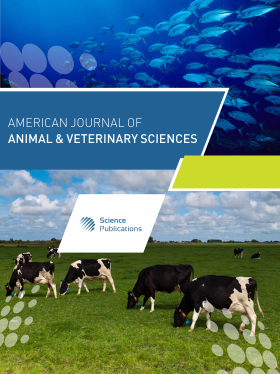In vitro Ruminal Cumulative Gas and Methane Production, Enzyme Activity, Fermentation Profile and Nutrient Digestibility on Feed Supplemented with Organic Selenium
- 1 Department of Animal Nutrition and Feed Science, Faculty of Animal Science, Universitas Gadjah Mada, Yogyakarta, Indonesia
- 2 Department of Animal Production, Faculty of Animal Science, Universitas Gadjah Mada, Yogyakarta, Indonesia
- 3 Research Center for Animal Husbandry, National Research Center and Innovation Agency (BRIN), CWS Yogyakarta, Indonesia
Abstract
Methane (CH4) emissions are indeed a global environmental concern and ruminants are a significant source of these emissions; however, there is limited understanding regarding the contribution of organic Selenium (Se) in mitigating CH4 emissions. Hence, this study investigated the impact of supplementing organic Se from Selenomethionine (Se-Met) on the in vitro ruminal cumulative gas and CH4 production, fermentation profile, enzyme activities, and nutrient digestibility. The trial protocol has been approved by the ethical clearance committee and encompassed four distinct treatments implemented within a completely randomized design. The treatments were described in the following manner: (1) Basic feed without additional substances (CTL); (2) CTL with 0.15 mg of Se per kg of Dry Matter (DM)-denoted as low Se-Met (LS); (3) CTL with 0.30 mg of Se per kg DM-referred to as medium Se-Met (MS); and (4) CTL with 0.45 mg of se per kg DM- termed high Se-Met (HS). Each group consisted of five replications and was randomly allocated to the in vitro tubes. The research was conducted comprehensively for two months. The data underwent analysis using the General Linear Model (GLM) procedure and a probability value of p<0.05 was used to determine statistical significance. The findings indicated that both the MS and HS interventions led to a gradual rise in the activity of carboxyl methyl cellulose (CMC-ase) (p<0.001), amylase (p<0.001), and protease (p = 0.002). A linear and quadratic rise (p = 0.001) in total VFA was observed across all Se-Met doses. Notably, HS exhibited a linear increase in acetate (p = 0.004) and a linear decrease in butyrate (p = 0.004). Microbial crude protein exhibited a linear increase (p = 0.003) in both the MS and HS groups. Gas production notably increased (p<0.05) at the 6 h post-incubation, with the highest total GP (p = 0.001) occurring at 48 h in the MS and HS groups. MS and HS also showed a linear improvement in gas kinetics: B (p = 0.003) fraction and a + b fraction (p = 0.002). The LS, MS, and HS groups demonstrated improvement in the in vitro DM digestibility (linear, p<0.001; quadratic, p<0.05) and in vitro organic matter digestibility (linear, p<0.001; quadratic, p = 0.006) compared to the CTL group. Furthermore, the MS and HS groups exhibited a noteworthy linear increase (p = 0.005) in the in vitro crude protein digestibility and in vitro crude fiber digestibility compared to the CTL group. This research indicates that supplementation of Se-Met, as organic Se, at 0.30 and 0.45 mg of Se per kg DM could impact rumen enzyme activities, fermentation patterns, and nutrient digestibility in vitro. Nevertheless, the Se supplementation did not demonstrate the ability to reduce CH4 gas emissions at these doses.
DOI: https://doi.org/10.3844/ajavsp.2023.261.272

- 757 Views
- 634 Downloads
- 0 Citations
Download
Keywords
- Enzyme Activities
- Methane Production
- Nutrient Digestibility
- Organic Selenium
- Rumen Fermentation
